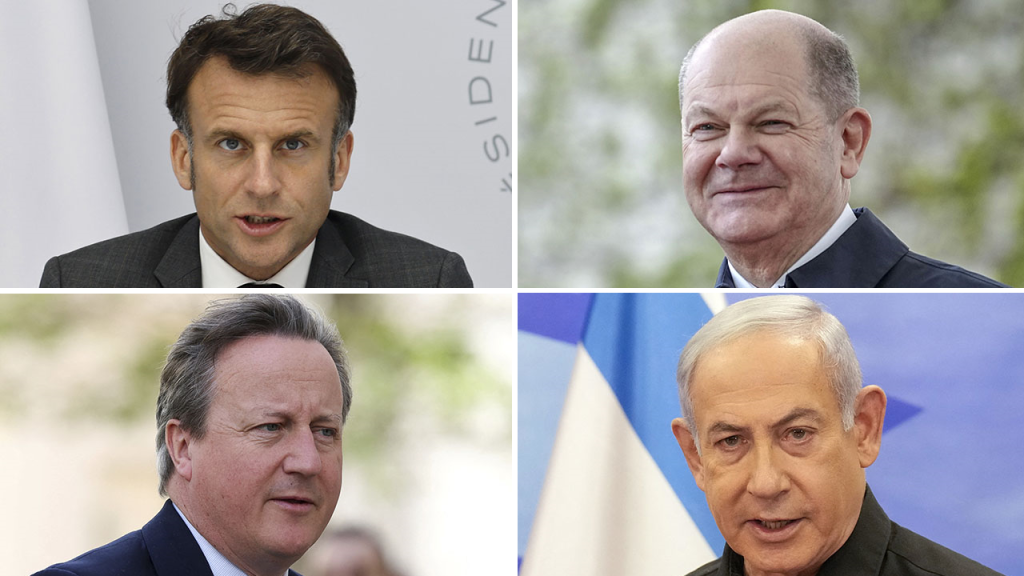World leaders like French President Emmanuel Macron and German Chancellor Olaf Scholz are calling on Israel to avoid escalating tensions with Iran in the Middle East following Iran’s recent attack on the country. Macron stated that France would try to convince Israel not to respond with escalation and instead work towards isolating Iran, increasing sanctions, and finding a path to peace in the region. Scholz also urged Israel to contribute to de-escalation and called for Iran to stop its aggressive actions. Both France and Germany have advised their citizens to depart Iran and cancel flights due to the increased risk of military escalation.
The recent attack by Iran on Israel involved the launch of hundreds of drones and missiles in response to a deadly strike on the Iranian consulate in Syria that resulted in the death of 12 individuals, including a senior commander in Iran’s Revolutionary Guards Corps. Israel did not claim responsibility for the strike, but a military spokesman stated that 99% of Iran’s drones and missiles were intercepted. British Foreign Secretary David Cameron also weighed in on the situation, acknowledging Israel’s right to respond but urging them to consider a smart and measured approach rather than a retaliatory one.
Despite being urged by world leaders to avoid escalation, Israel is preparing for potential retaliatory responses to Iran’s attack. House Speaker Mike Johnson is expected to bring a spending package to the House floor that includes providing more wartime aid for Israel. Additionally, bills that would increase sanctions on Iran and condemn the Islamic Republic for the attack are likely to be introduced in the coming week. The goal is to support Israel in defending itself while also seeking to prevent further escalation of violence and conflict in the region.
The international community is closely monitoring the situation between Israel and Iran, with concerns about the potential for further violence and instability in the Middle East. Macron and Scholz’s calls for de-escalation reflect a broader desire to prevent a full-blown conflict from erupting in the region. By isolating Iran, increasing sanctions, and encouraging diplomacy, world leaders are attempting to find a peaceful resolution to the tensions between Israel and Iran.
The failed attack by Iran on Israel has not only highlighted the ongoing tensions between the two countries but also revealed Iran’s willingness to engage in aggressive actions in the region. While Israel has the right to defend itself, the hope is that a measured response can prevent the situation from escalating further. Providing aid to Israel and imposing sanctions on Iran are seen as potential steps to address the current conflict and prevent future escalations in the Middle East.
As the situation continues to evolve, the international community remains focused on preventing further violence in the region. Diplomatic efforts are underway to find a path towards peace while also ensuring that Israel has the support it needs to defend itself against aggression. The coming days will be crucial in determining the next steps in addressing the tensions between Israel and Iran and working towards a resolution that avoids further escalation and promotes stability in the Middle East.













